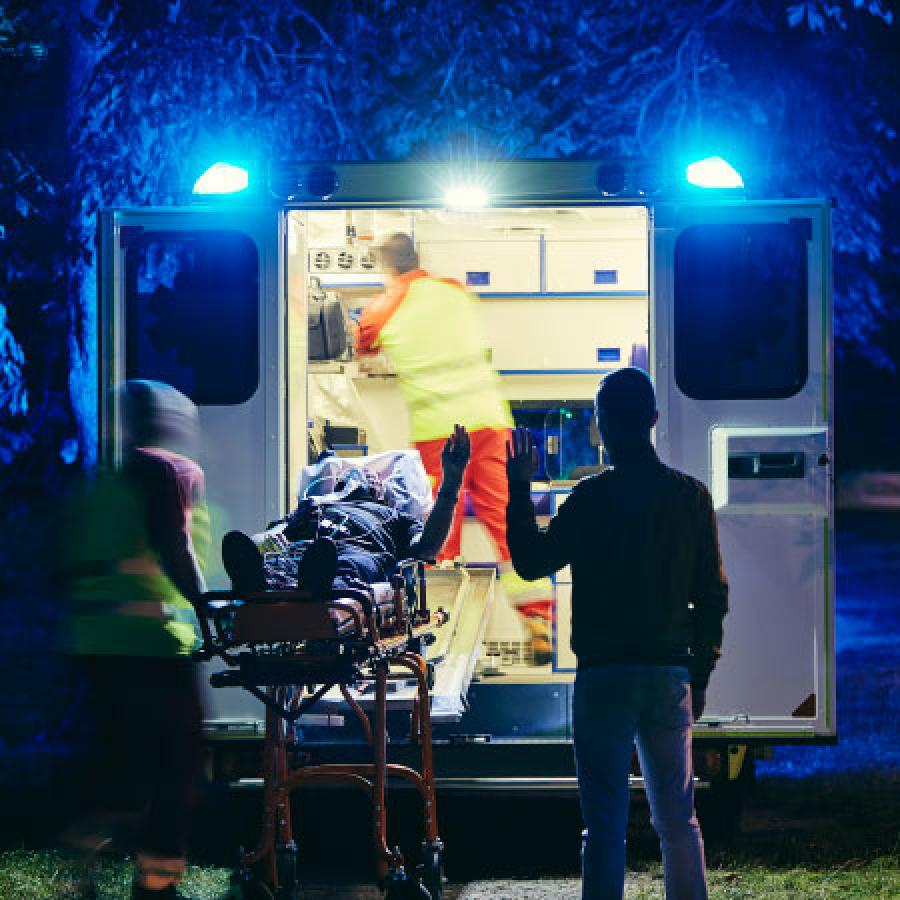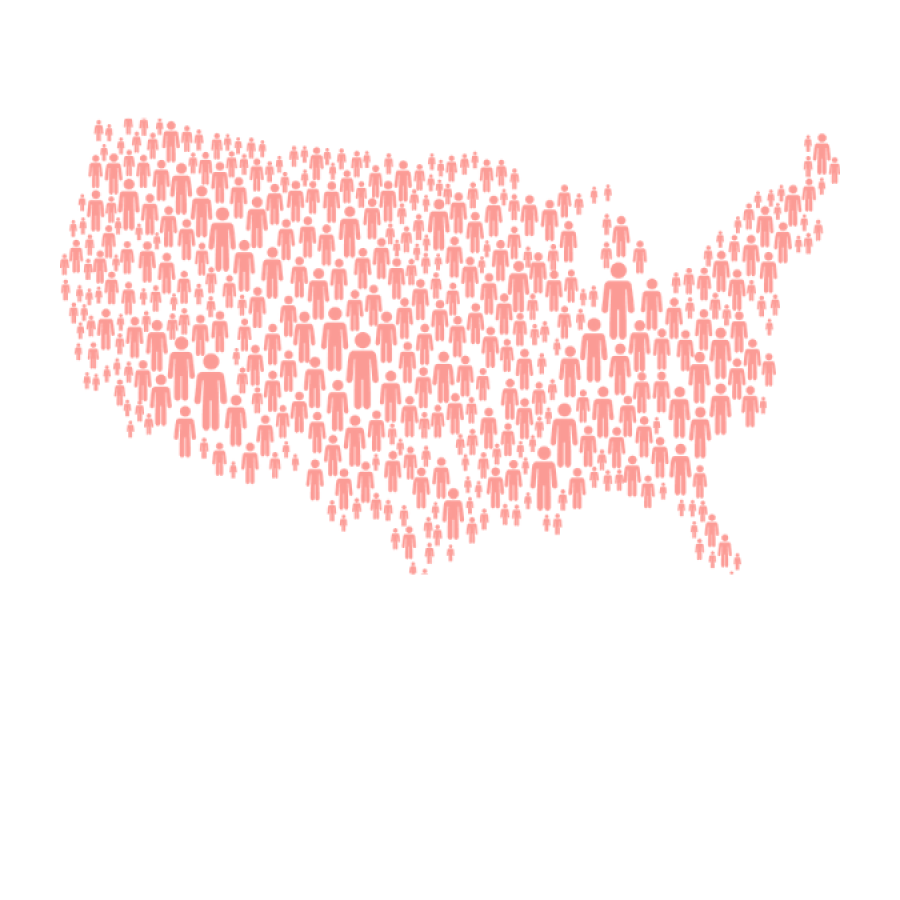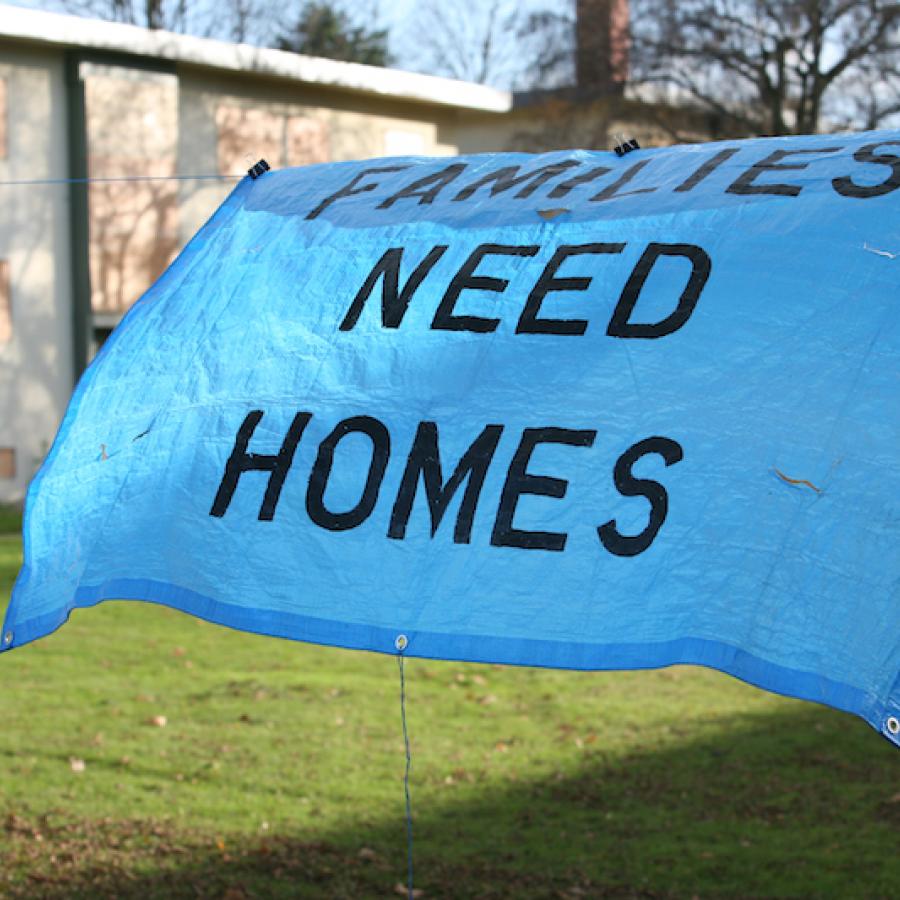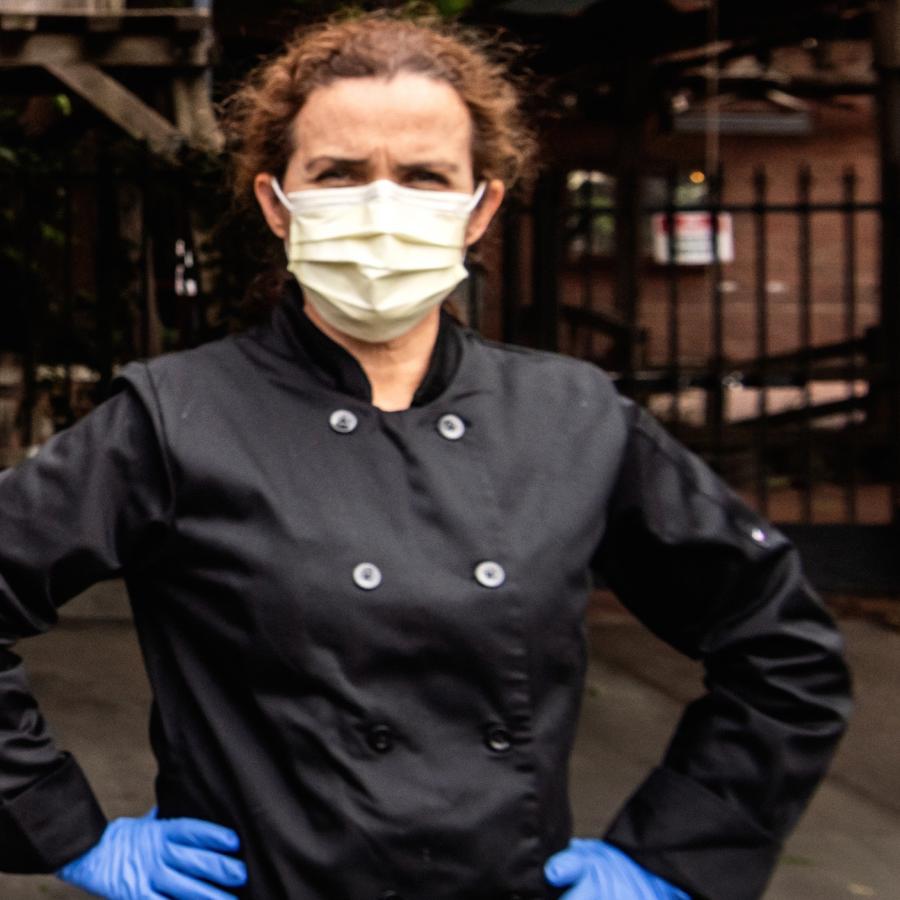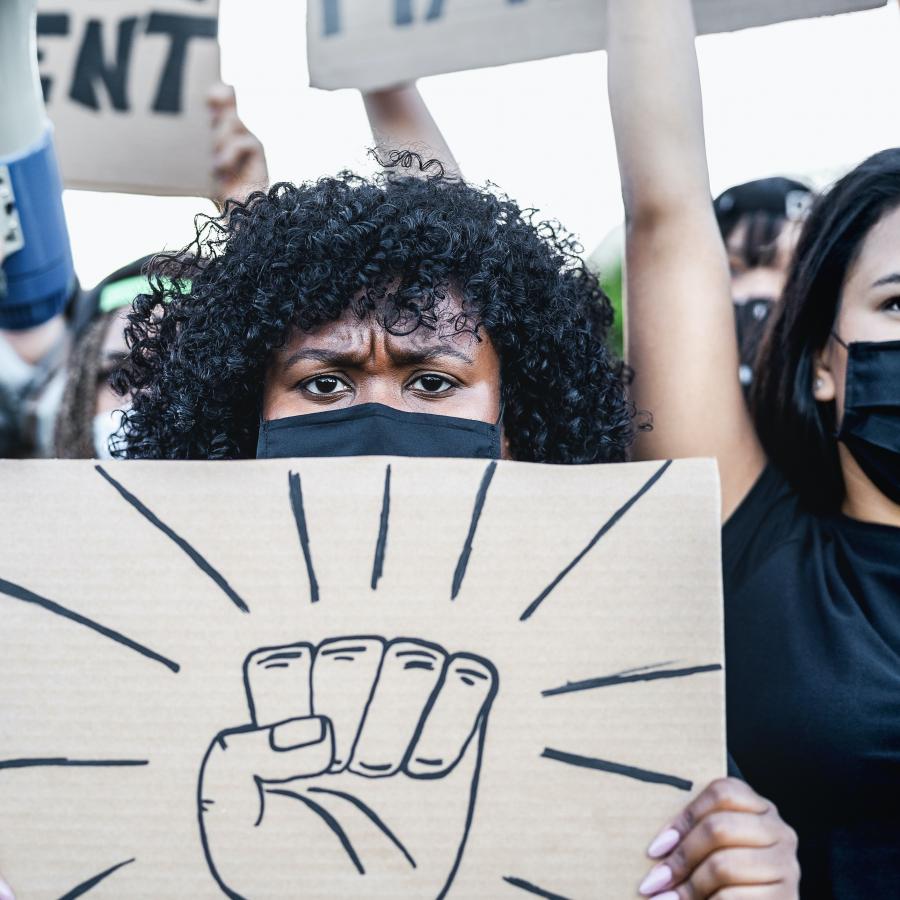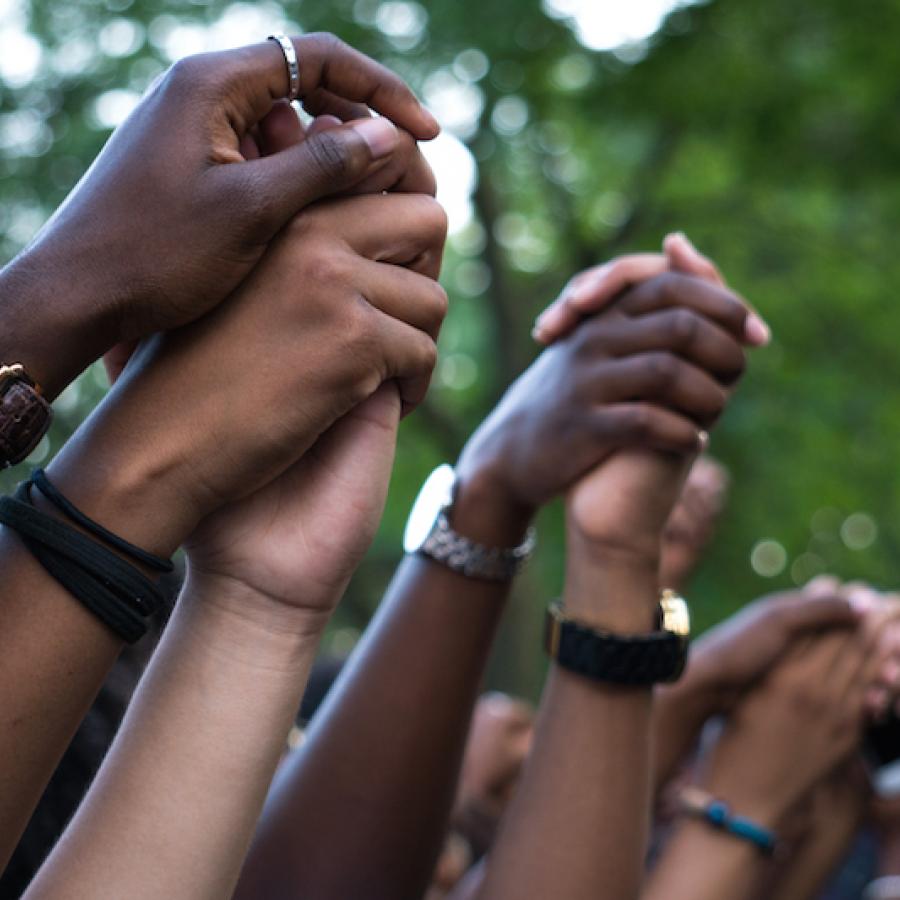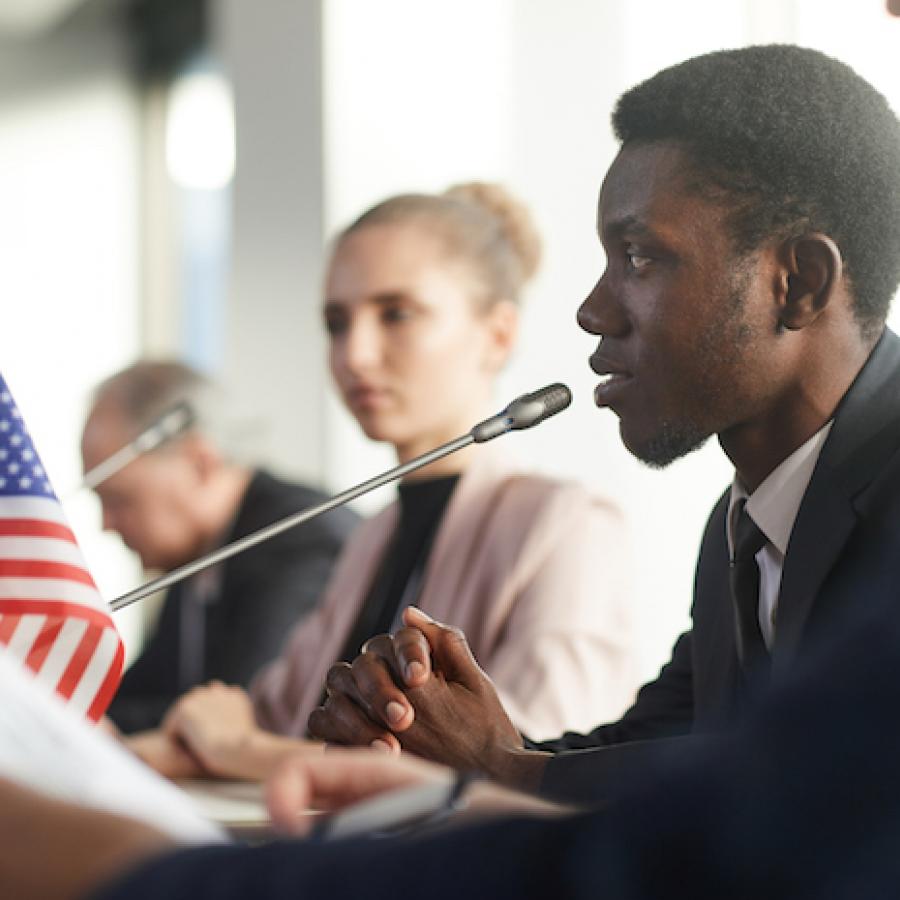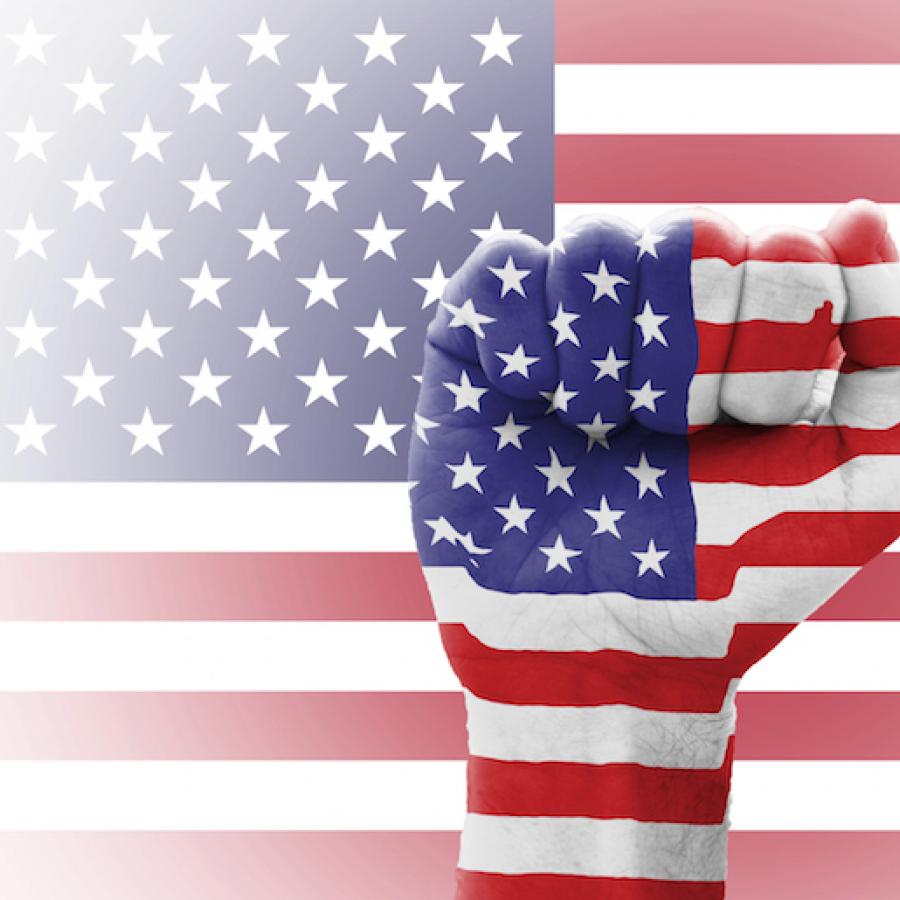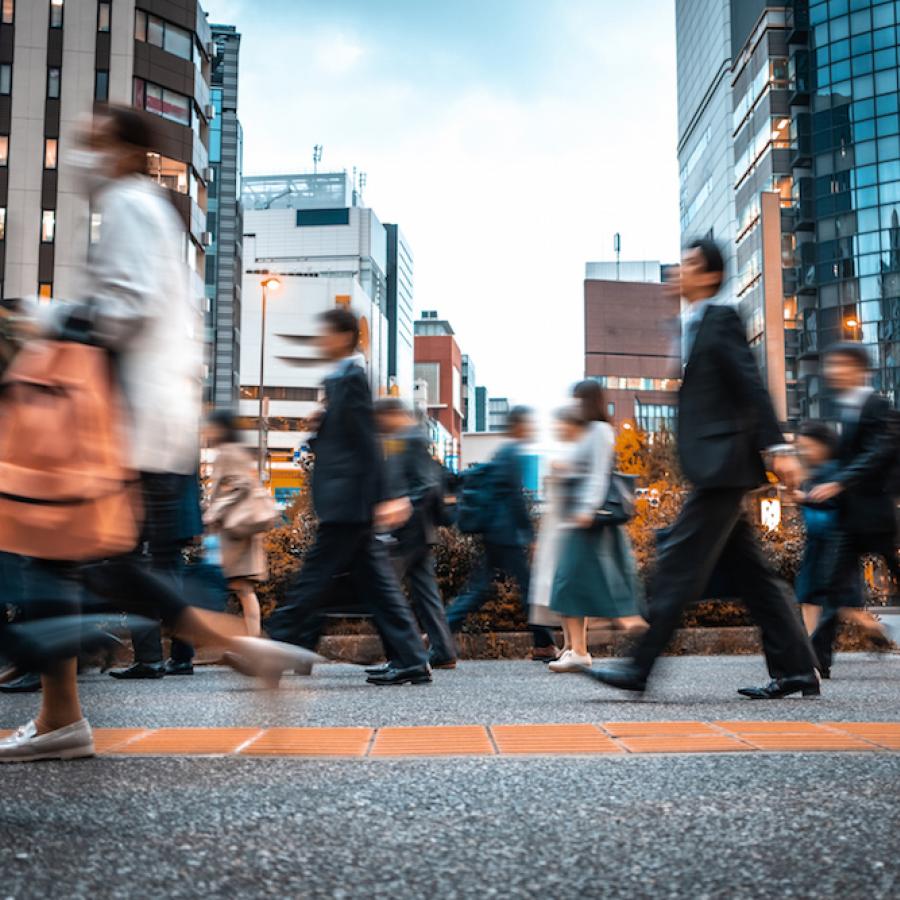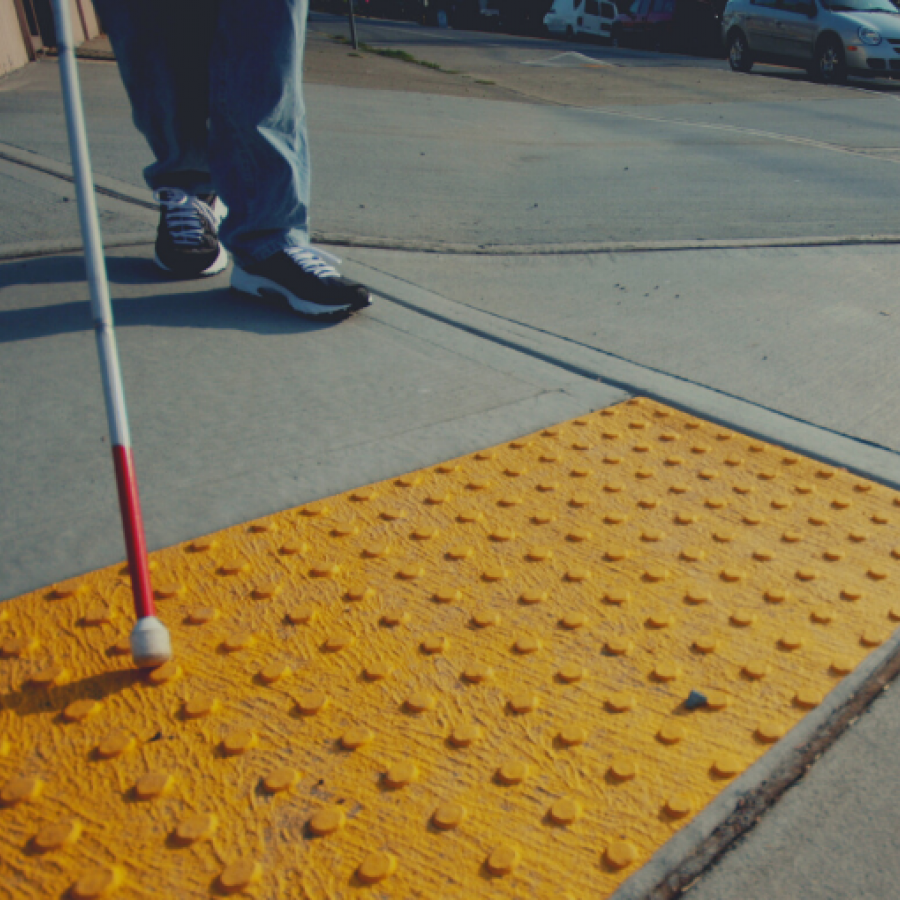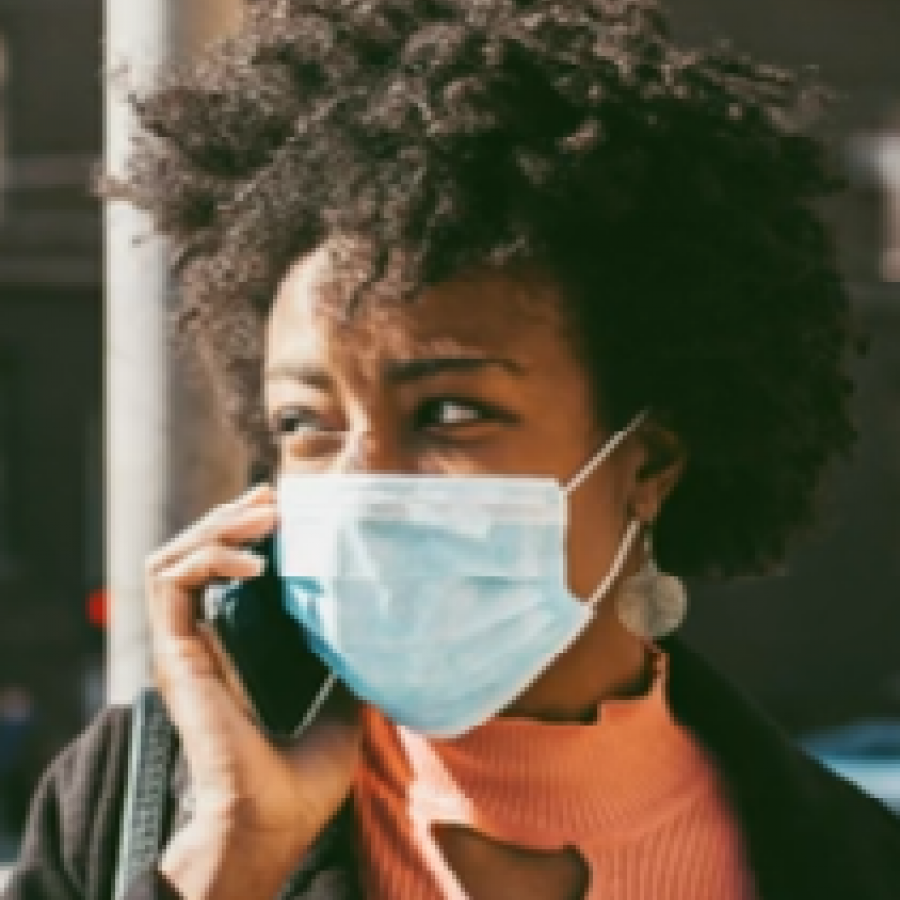Covid, Race, and the Revolution is the new name of our weekly publication about the equity implications of this extraordinary moment in the nation. We will continue to bear witness to Covid’s disproportionate impact on people of color and highlight bold solutions for equitable recovery. But the murder of George Floyd has heightened national awareness of structural racism and brought revolutionary fervor to the struggle to create an anti-racist nation — and we seize that fervor here. We will offer commentary, news, and analysis about revolutionary strategies, and the insights and aspirations of movement leaders.
Issue No 14. July 15, 2020
The Revolution America Needs
By Angela Glover Blackwell and Michael McAfee
The two of us are a generation apart yet joined in our singular excitement at witnessing the rebirth of the nation. This could be the moment, decades in the making, when the revolution for a just society in which all can reach their full potential finds its power.
Riddled with suffering and death on a scale this country hasn’t seen in a century, the nation is enduring a nightmare of callous, dysfunctional government leadership. The devastation is rooted in racism, inequality, and centuries-long disregard for the lives of Black, Indigenous, and Brown people. The pandemic has made it painfully clear that the entire country is vulnerable to the fallout of racism. Black leaders and leaders of color have demanded that the racialized impact of the pandemic be addressed, just as they’ve demanded that racialized policing and incarceration be addressed. White people, heretofore in denial, began acknowledging the existence of structural racism.The deliberate, vicious murder of George Floyd has shown the whole nation the lethal reality of racism baked into society’s systems and institutions.
Progressive social media and many mainstream news outlets that are fed up with lies and threats to democracy, including freedom of the press, are steadily producing real-time information, reporting, and reactions. The resistance from right-wing activists and their media mouthpieces — news outlets spewing racist tropes and attempting to shore up opponents to change --- have emboldened and expanded the ranks of the justice advocates, not tempered them. Unquestionably, the unabated spread of Covid-19 has also kept awareness of racism from fading into the background. But huge worldwide demonstrations, denouncing the George Floyd murder and insisting that Black Lives Matter, opened the flood gates and released legitimate, long-ignored demands of people of color that structural racism must be destroyed. In a stunning show of solidarity, hundreds of thousands of White people have joined in these demonstrations. Collectively these events have ushered in this revolutionary moment.
Make no mistake: Black liberation requires revolution. It is no accident that the demonstrators are united in their commitment to center Black people, their history, their continued oppression, and their goals. The isolation, degradation, discrimination, and oppression of Black people is at the heart of all oppression in America. Only by addressing this truth head on with clarity, honesty, and determination to fix it, will liberation for all be achieved. The way forward will entail deconstructing, reimagining, and reconstructing the nation’s politics, economy, systems, and major institutions. The revolutionary spirit that conceived this nation is upon us again, this time with a full vision of equality, democracy, and participation.
Nearly all the necessary elements for transformative change were in place before the pandemic. Brilliant Black, Indigenous and other scholars of color have produced honest, accessible, fact-based accounts of US history. Acknowledgment that this nation was built on stolen land, genocide, human bondage, and slave labor, and that the nation still relies on a narrative of white supremacy to oppress people of color, has become a key element in the quest to fundamentally reshape the future. There is now broad understanding of the interplay between structural racism and the toxic economic inequality that is hollowing out the middle class, baking in poverty, halting economic mobility, and literally killing Americans. There is also a keen sense of the magnitude of the challenge, thanks to books and articles revealing how corporate interests have hijacked democracy and used their outsize influence to thwart public policy aimed at achieving racial and economic equity, not to mention initiatives to enhance voting power by Black and Latinx people.
Not only is the country strategically ready for the revolution; we also have plenty of evidence about what the new social order will look like. It envisions that all people live in communities filled with the opportunity provided by good schools, safe neighborhoods, and the basics for a healthy life, including grocery stores, affordable medical care, playgrounds, and accessible, well-connected public transit. Years of community-based programs and initiatives have been shown to improve outcomes for low-income Black and Latinx children. These programs have demonstrated how to implement effective, nuanced, place-based policy with realistic price tags — large-scale solutions, not the piecemeal efforts with stingy funding that benefit only a few, and that we have accepted for too long.
There is also a fully developed robust national policy agenda that provides universal, high-quality health care for all; affordable, readily available childcare for all who need it; a 21st century public preschool through four-year college educational system; living-wage jobs; voice for workers in all workplaces; and an environment protected for future generations. The majority of these policies have garnered extensive support, and need only political will to become law.
For the new generation of Black and Brown justice advocates, however, this policy agenda is necessary but insufficient. Creating an anti-racist society will require more than fixing the system that has been sustained by racism and white supremacy. Being truly responsive to the call for racial and economic justice demands radical approaches that defund the police; treat housing as a human right; guarantee a job for everyone who wants one; provide a guaranteed minimum income; and finally provide reparations for the harm caused by slavery and continuing racist degradation, theft, and violence. And that’s just for starters. Reinforcing the possibility that these demands can become reality are the numerous campaign victories led by multiracial, intersectional coalitions demonstrating the power of transformative solidarity to achieve radical change.
Maximizing this moment to become a full-fledged revolution will challenge us all. This is not the time to be risk averse. It will require courage, the usual sort, but the not-so-usual as well. Privileges must be abandoned. Generosity and grace must be summoned. Assumptions will be tested. Setbacks will be endured. Loyalties and alignments will be questioned and some will be found wanting. The very idea of allyship must be examined: White people cannot simply view themselves as helping people of color fight for their dignity. This is not a Black problem, it is America’s problem. Whites must move from allyship to ownership of the problem. People of color must move from demanding inclusion and respect to creating and leading the America we all want and need.
Angela Glover Blackwell is the Founder in Residence of PolicyLink and host of the podcast Radical Imagination. Michael McAfee is the President and CEO.
News, Analysis, and Commentary, Curated from Around the Web
As Covid-19 hits record levels across the US — Florida reported more new cases on Sunday alone, 15,300, than South Korea has logged through the entire pandemic — experts say the economy won’t fully recover until well past 2022. The declines in low-wage leisure and hospitality industries, which disproportionately employ workers of color, will be steepest and last longest, while technology and other high-growth, high-wage sectors will rebound faster, the New York Times reports.
The crisis has not only intensified already dire economic insecurity, but also clarified how severely the government and employers have eroded labor rights and bargaining power and fleeced workers, Josh Eidelson writes in Bloomberg. “The pandemic could give employers even more power to set the rules or it could give workers a chance to end the heist on a national scale.”
The Nation examines cooperative business ownership as a transformative recovery strategy that would build worker power, reverse racial inequities, and create a fairer, more just economy.
As economic upheaval collides with the national uprising for racial justice, Brookings has a message for the many corporate leaders publicly claiming support for Black Lives Matter: sound bites aren’t enough. Show you value Black lives by prioritizing the safety, economic security, and dignity of Black workers. “There is no racial justice unless workers also have economic justice.” Only a small number of large companies — 78 of 3,000, in one analysis — tie executive compensation to goals for hiring and promoting employees from underrepresented groups.
Meanwhile, 156 prominent economists have published an open letter exhorting policymakers to give individuals recurring cash payments to keep struggling people afloat, boost consumer spending, and staunch the economic hemorrhage. And supermarket clerks, nursing aides, bus drivers, and other essential workers are demanding hazard pay, NPR reports. These workers have been hailed as heroes and showered with thank-you trinkets, but fewer than a third have received additional pay or benefits — and those who did got a small one-time bonus or a temporary wage bump of about $2 an hour.
New federal data, which the New York Times obtained by suing the Centers for Disease Control and Prevention, reveals the clearest picture yet of the virus’s toll on Black and Latinx people. The disproportionate impact spans the country, throughout hundreds of urban, suburban, and rural counties and across all age groups.
Covid-19 is killing Black Chicagoans at more than 2.5 times the rate of White residents, forcing leaders to confront decades of policy neglect, the Washington Post reports. Data from several states show that Native Hawaiians and Pacific Islanders are contracting Covid-19 at disproportionately high rates — Pacific Islanders make up just 4 percent of Hawaii’s population, for example, but 23 percent of cases as of June 26, Iyanrick John and Priya Raman write on the blog of the American Public Health Association.
In New York City, surviving the disease may boil down to which hospital you go to, according to a New York Times analysis comparing outcomes in underresourced hospitals in Brooklyn, Queens, and the Bronx, with those in Manhattan’s private medical centers.
After months of asserting that pregnant women are not at elevated risk for Covid-19, the CDC has released a study showing that pregnant Latina and Black women were infected at significantly higher rates than White women, ProPublica reports. As of July 2, at least 30 pregnant women and new mothers with the virus have died.
In Oregon, coronavirus cases among children under age 10 jumped five-fold in June. It was the largest increase in any age group, and an alarming challenge to the long-held belief that children are relatively safe from Covid-19, the Oregonian reports. In Minnesota, people under age 20 make up 11.6 percent of coronavirus cases, up from 6.25 percent in May, KARE 11 reports.
One in five Americans in rental households — nearly 30 million people — are at risk of eviction by September 30, the Washington Post reports. The pandemic has pushed New York City’s affordable housing problem to the breaking point: a quarter of tenants haven’t paid rent since March, Bloomberg writes. In Contra Costa County, near San Francisco, 12,000 renter households were at imminent risk of eviction as a local moratorium neared expiration, according to an analysis by the Bay Area Equity Atlas. Advocates won a unanimous vote by the county board of supervisors to extend the moratorium and rent freeze to September 30.
The federal government protected the mortgage market when the economy shut down in March but despite Democratic proposals, Congress has no rescue plan for renters. Black and Latinx people are twice as likely as White people to be renters and they pay a greater share of income for rent in most major metros, according to a report by Housing Matters. The Black LGBTQ community, already highly vulnerable to housing and economic instability, is threatened further by a newly proposed federal rule to overturn Obama-era protections and allow shelters to discriminate against transgender people.
As hunger skyrockets and nearly four in 10 Black and Latinx households with children struggle to feed their families — nearly double the rate of White families — food justice is becoming an important front in the fight against racism. Black organizers nationwide are getting fresh, healthy food to those who need it most, feeding families in shelters and delivering groceries to Black people who became food insecure after civil unrest swept their neighborhoods, writes the website Civil Eats. Allies are providing meals to a Black Lives Matter chapter, championing Black chefs, and advocating for workplace diversity.
In Detroit, a musician searching for an outlet for her grief after the police murder of George Floyd has created a “sharing table,” stocked with canned goods, rice and noodles, produce, cold drinks, and hygiene products — all free for the taking, no questions asked, Metro Times reports. She made the initial purchases and now the table, modeled after one in Seattle, is largely self-sustaining.
New York City activists, united by a passion for food and justice, have set up “community fridges” — sidewalk refrigerators outside bodegas and apartment buildings to combat food waste, relieve hunger, and bring neighbors together in caring for each other, The Cut reports.
“Is unschooling the way to decolonize education?” Next City raises that provocative question as communities wrestle with how, or whether, to reopen K-12 schools. The public education system has been failing children for decades, with systemic racism and colonialism baked into the standard curriculum and the biases — unconscious or not — of majority White-administered districts on full display, writes Valerie Vande Panne. “As more and more people across the nation call for an end to institutionalized racism, the realization is that for equity to take root, every level of our society needs to change. Institutions that perpetuate white supremacy, including schools, will need to change or be abolished in their current form.”
Many teachers have expressed major safety concerns about returning to classrooms and have pushed back against the Trump administration, which has pressed for schools to reopen to get the economy back on track, Education Week reports.
International students were thrown into chaos after Immigration and Customs Enforcement announced they must take classes in person at their colleges and universities to remain in the country for the fall semester. The Trump administration walked back the new rule after 17 states sued to block it and dozens of universities joined lawsuits by higher education. The rule was widely seen as part of the administration’s pressure campaign to reopen the country even as Covid-19 infections and deaths mount — and another cruel federal effort to use the pandemic as cover for further restricting immigration.
A young generation of color living in the American heartland has surged over the past decade, a seismic change fueling racial protests in every corner of the country and forcing communities, colleges, and corporations nationwide to reckon with racism, finds a Washington Post review of new US Census Bureau data. In Iowa, for example, where the anti-racist movement has taken off, the under-30 population of color has grown faster than the older White population in 84 of the state’s 99 counties, and in some places has increased by more than 50 percent.
The growing movement is animated by a radical vision, Amna Akbar writes in the New York Times: activists don’t want incremental policy reforms but a new society — justice reimagined, housing as a human right, jobs for all, and a carbon-neutral globe. A big obstacle to change on this scale may be the White liberals who profess to support the movement, Betsy Hodges, former Minneapolis mayor, writes in the Times. “We have mostly settled for illusions of change, like testing pilot programs and funding volunteer opportunities. These efforts make us feel better about racism, but fundamentally change little for the communities of color whose disadvantages often come from the hoarding of advantage by mostly White neighborhoods.”
The Open Society Foundations have made a down payment on the new American future, announcing investments of $220 million in emerging organizations and leaders building power in Black communities. James Crowder Jr. of PolicyLink writes on the WHYY website that reparations — and a bold reparative framework that addresses the harms caused by flawed government policies — can help cities meet the challenges of the moment, with the urgency it demands.
PolicyLink draws from articles, videos, interviews, and other sources across platforms, as well as from our network of equity leaders and activists, to bring you the latest information about COVID-19 and race. We offer this resource to:
- Provide easy access to information on the dual health and economic crises facing people of color;
- Put and keep racial equity at the center of our collective understanding of the pandemic and the policies needed for relief and recovery; and
- Lift up useful data and insights that can fuel equity advocacy and campaigns.
Please share with your networks and send your ideas and feedback. And follow us on Twitter, LinkedIn, Facebook and Instagram. #COVIDandRace
We hope you find the COVID-19 and Race Series an important tool for keeping up with news about the virus and its impact on communities we serve. As a non-profit organization, PolicyLink is honored to provide resources to support the needs of our nation's 100 million economically insecure individuals. Generous partners like you make our work possible.
Michael McAfee and Angela Glover Blackwell are grateful for the contributions of Fran Smith, Milly Hawk Daniel, Rachel Gichinga, Glenda Johnson, Jennifer Pinto, Heather Tamir, Ana Louie, Janet Dickerson, and Mark Jones to produce the COVID-19 & Race commentary.
